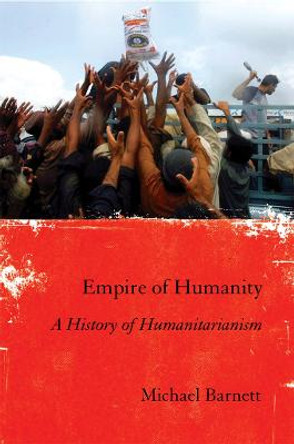From Empire to Humanity tells the story of a generation of American and British activists who transformed humanitarianism as they adjusted to becoming foreigners to each other in the wake of the American Revolution. In the decades before the Revolution, Americans and Britons shared an imperial approach to charitable activity. They worked together in benevolent ventures designed to strengthen the British empire, and ordinary men and women donated to help faraway members of the British community. Raised and educated in this world of connections, future activists from the British Isles, North America, and the West Indies developed expansive outlooks and transatlantic ties. For budding doctors--including Philadelphia's Benjamin Rush, Caribbean-born Londoner John Coakley Lettsom, and John Crawford, whose life took him from Ireland to India, Barbados, South America, and, finally, Baltimore--this was especially true. American independence put an end to their common imperial humanitarianism, but not their friendships, their far-reaching visions, or their belief in philanthropy as a tool of statecraft. In the postwar years, with doctor-activists at the forefront, Americans and Britons collaborated in the anti-drowning cause and other medical philanthropy, antislavery movements, prison reform, and more. No longer members of the same polity, the erstwhile compatriots adopted a universal approach to their beneficence as they reimagined their bonds with people who were now foreigners. Universal benevolence could also be a source of tension. With the new wars at the end of the century, activists' optimistic cosmopolitanism waned, even as their practices endured. Making the care of suffering strangers routine, they laid the groundwork for later generations' global undertakings.
About the AuthorAmanda B. Moniz is Assistant Director of the National History Center and Program Coordinator of the American Historical Association. She received her PhD from the University of Michigan and held a Cassius Marcellus Clay Post-Doctoral Fellowship at Yale University.
ReviewsThis bold book begs as many questions, and some concerns, as it does open new vistas. One inheres in Moniz's method. Her marvelous tales of self-sacrificing doctors give readers a view of the challenges and meanings of religious and professional dedication. * Jeremy Adelman, Diplomatic History *
fascinating, very well researched ... Highly recommended. * CHOICE *
Extensively researched, meticulously documented, and elegantly phrased * Bela Kashyap, The Register of the Kentucky Historical Society *
Moniz's study is innovative; it opens a clear, usable path for further research into Enlightenment-era humanitarianism, and non-state Anglo-American relations following the Treaty of Paris of 1783. * Patrick Lacroix, Human Rights Review *
Book InformationISBN 9780190240356
Author Amanda B. MonizFormat Hardback
Page Count 328
Imprint Oxford University Press IncPublisher Oxford University Press Inc
Weight(grams) 567g
Dimensions(mm) 157mm * 239mm * 36mm








